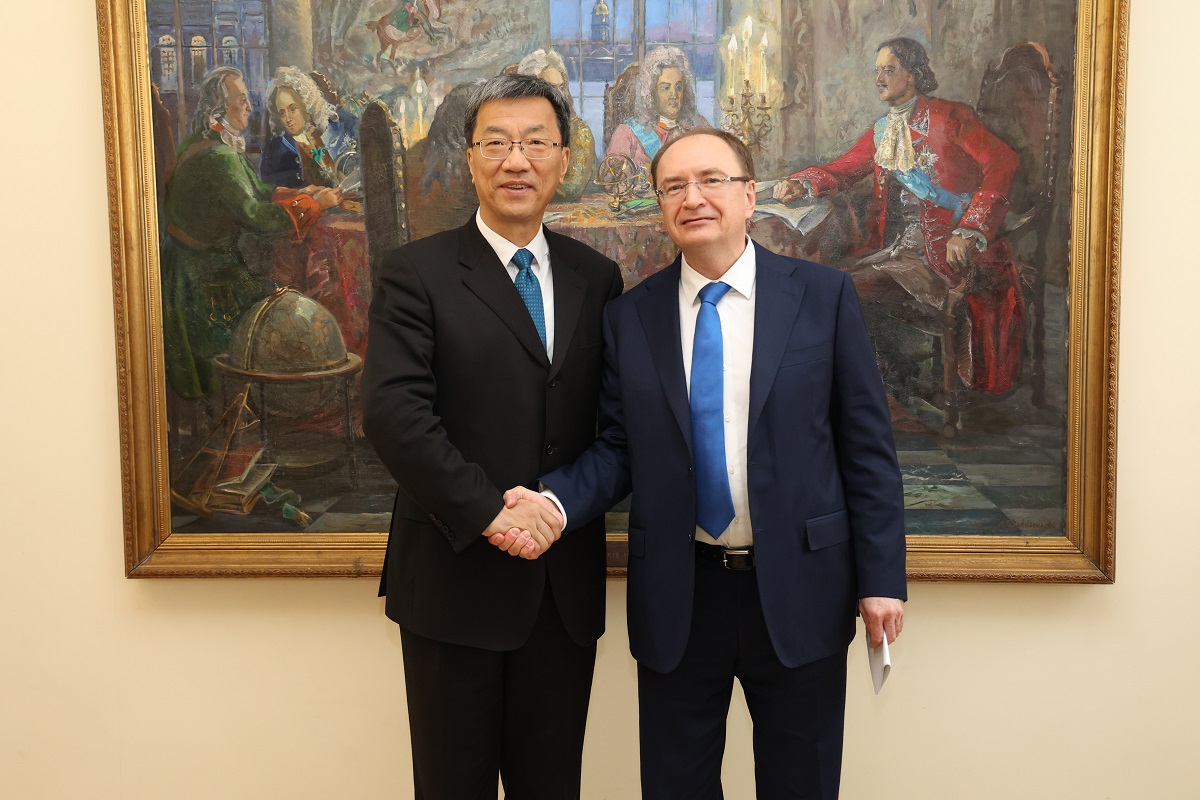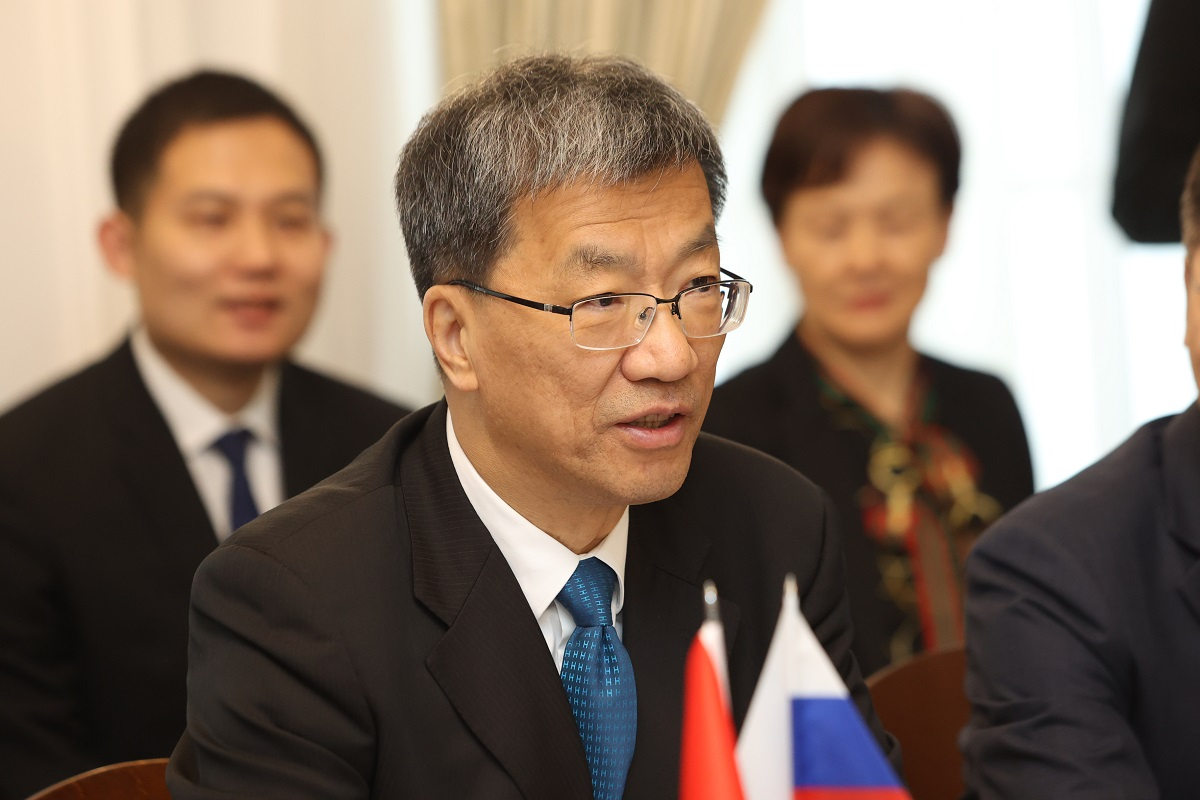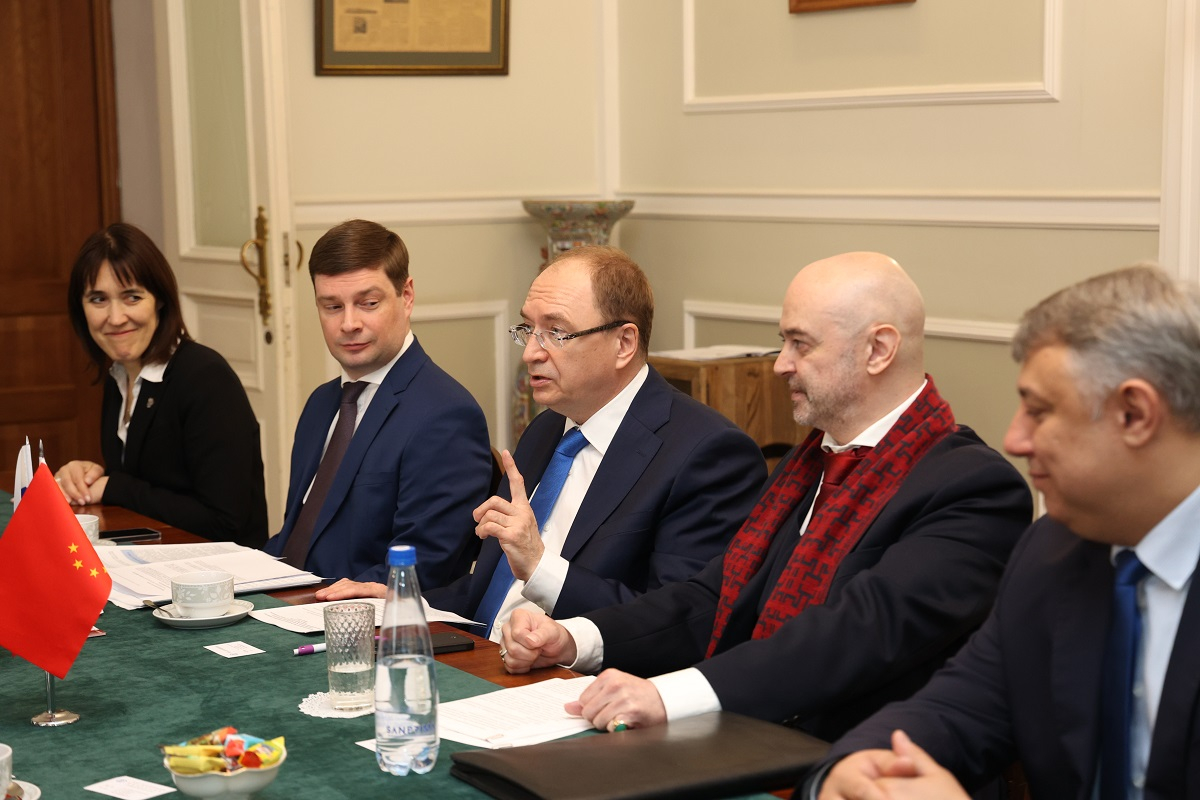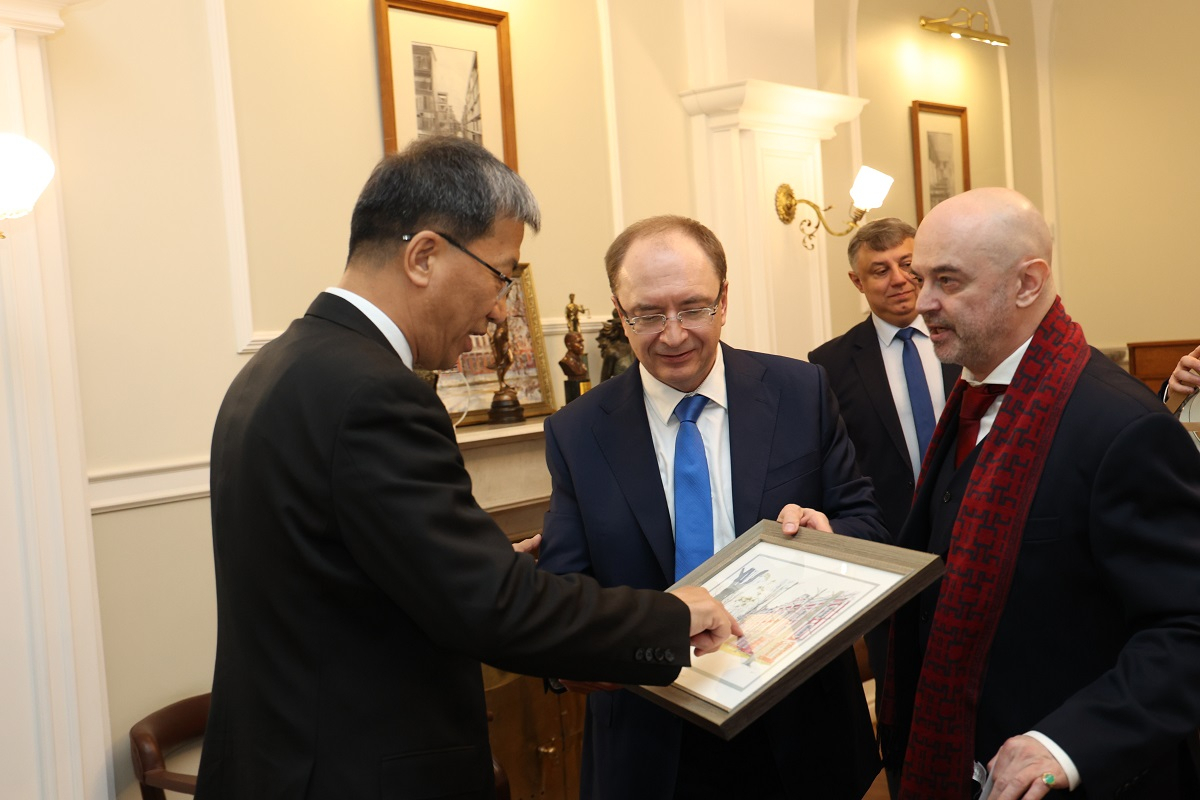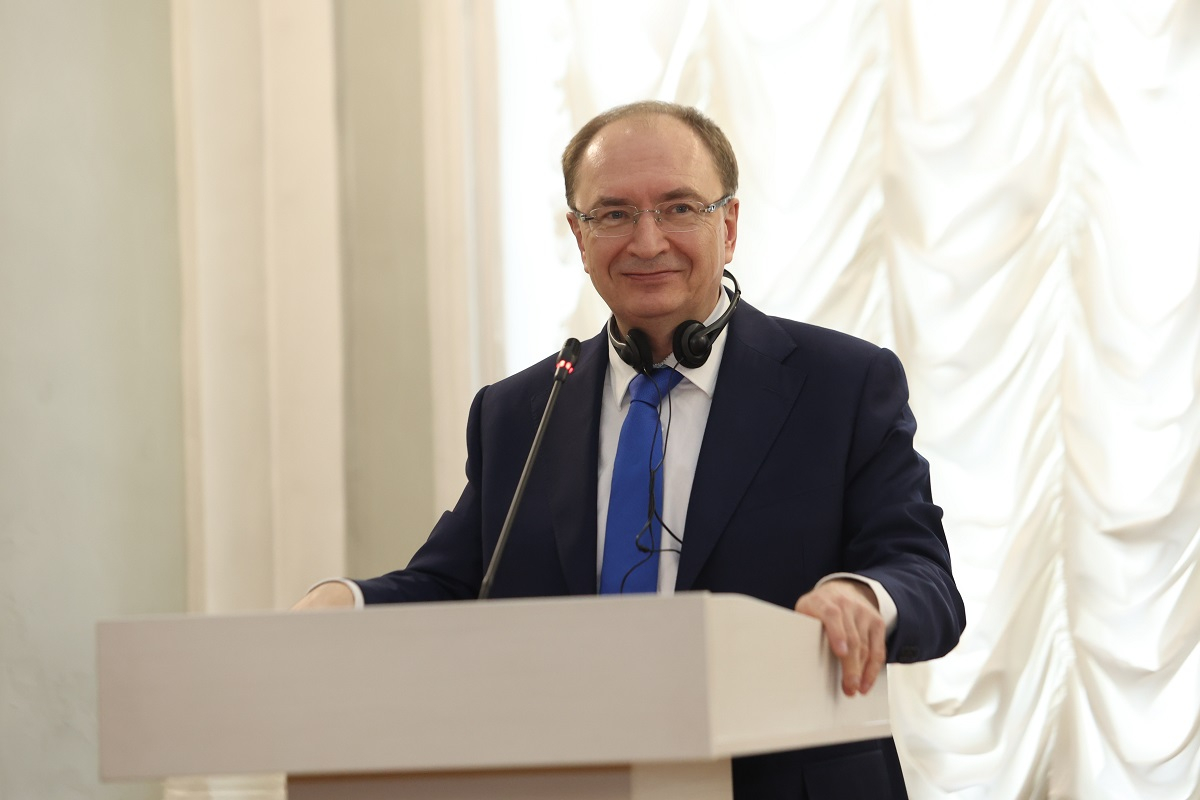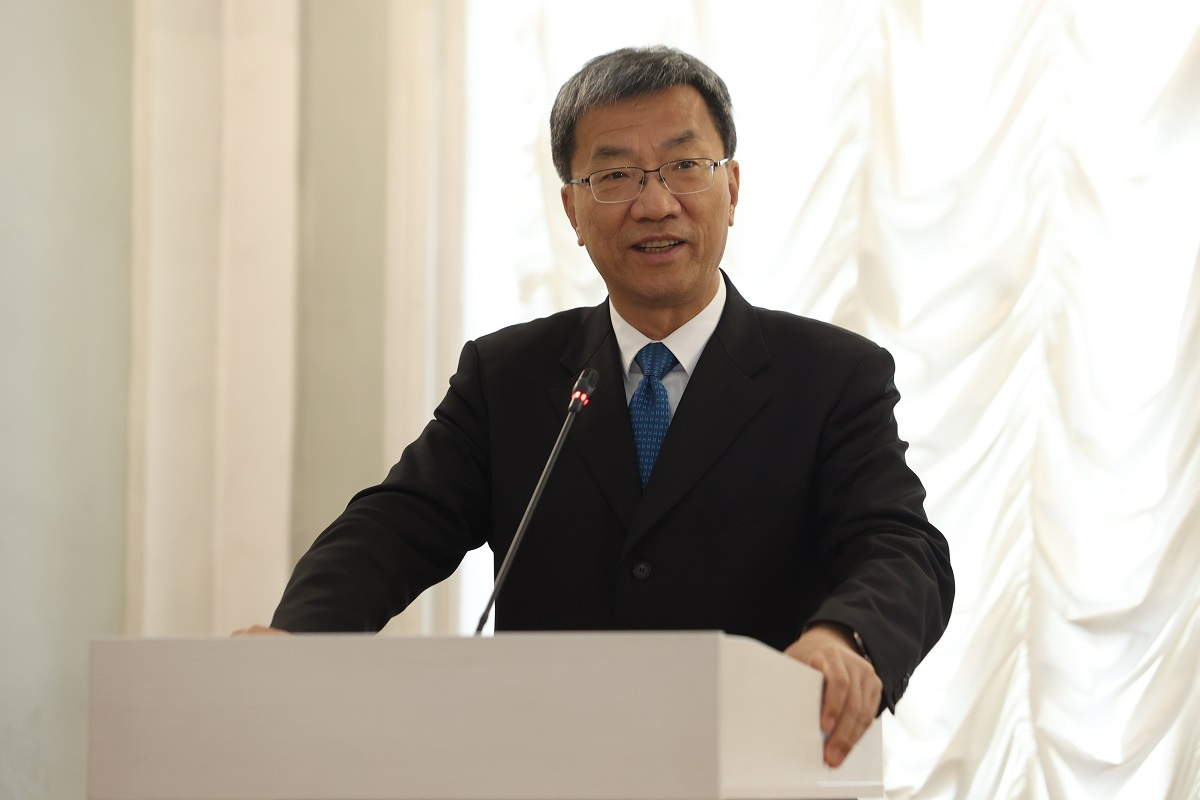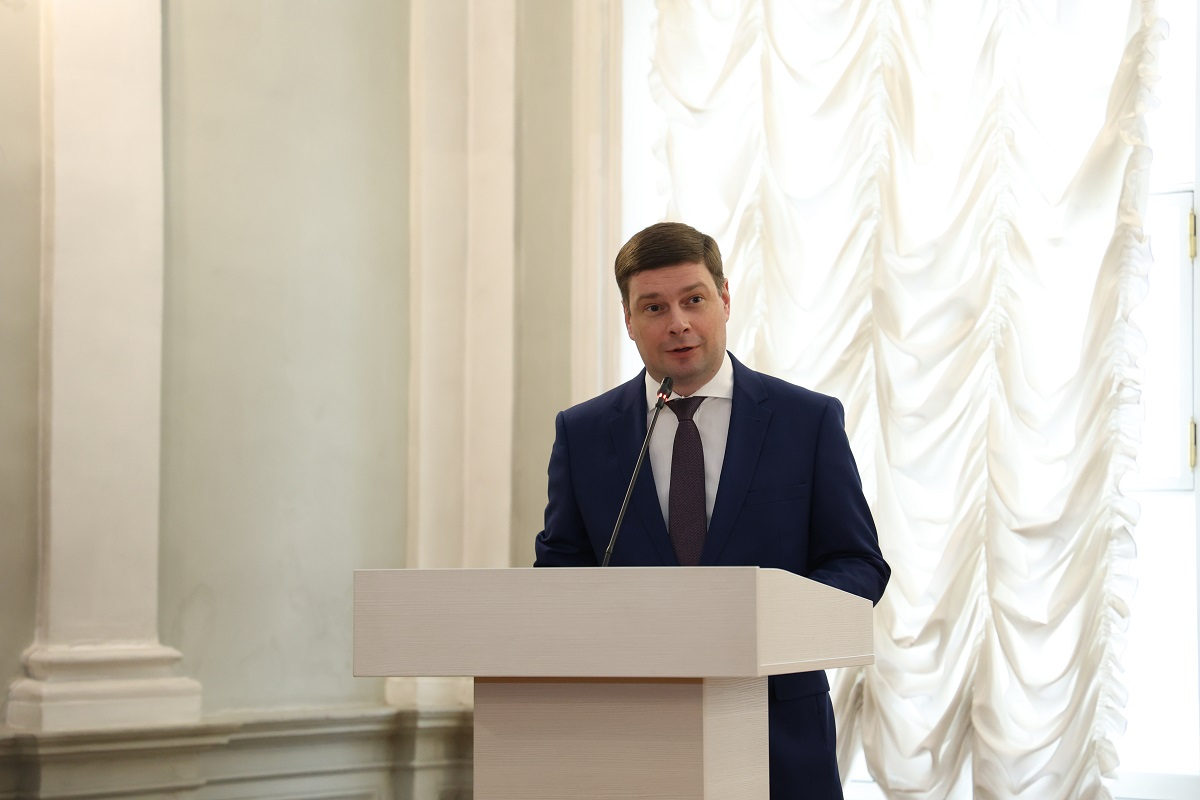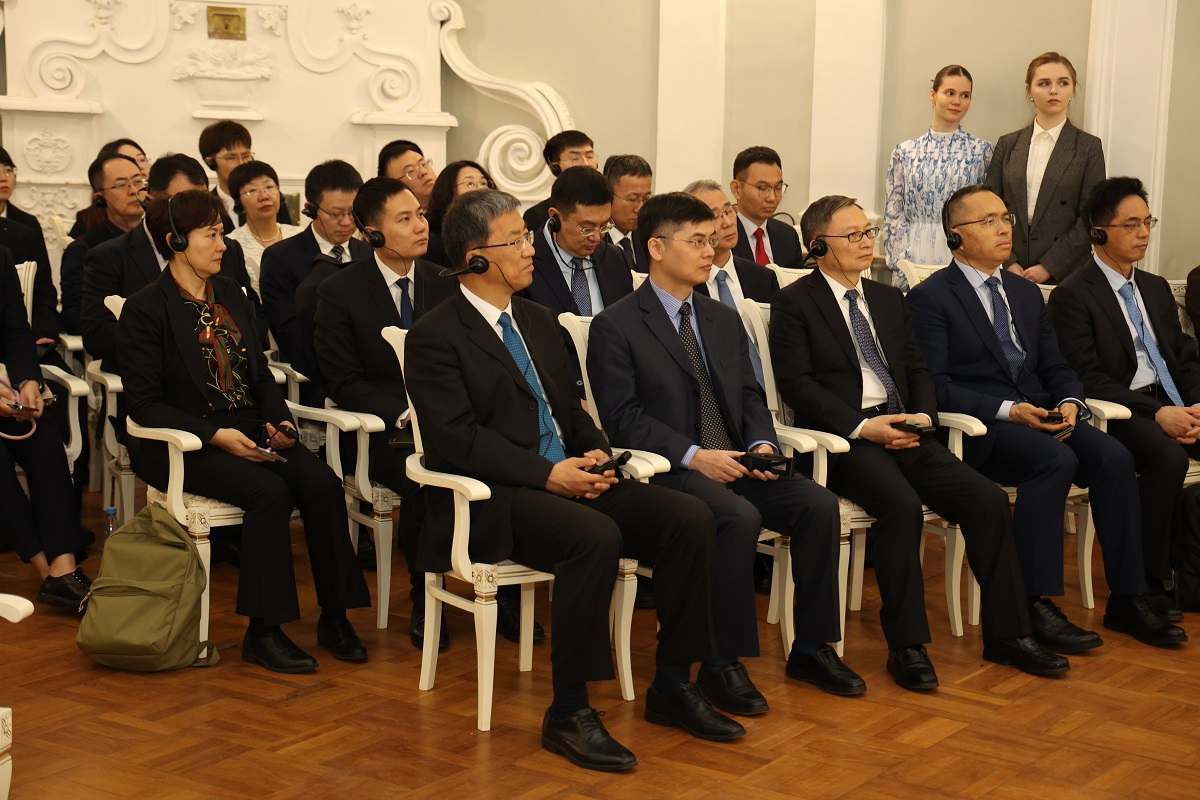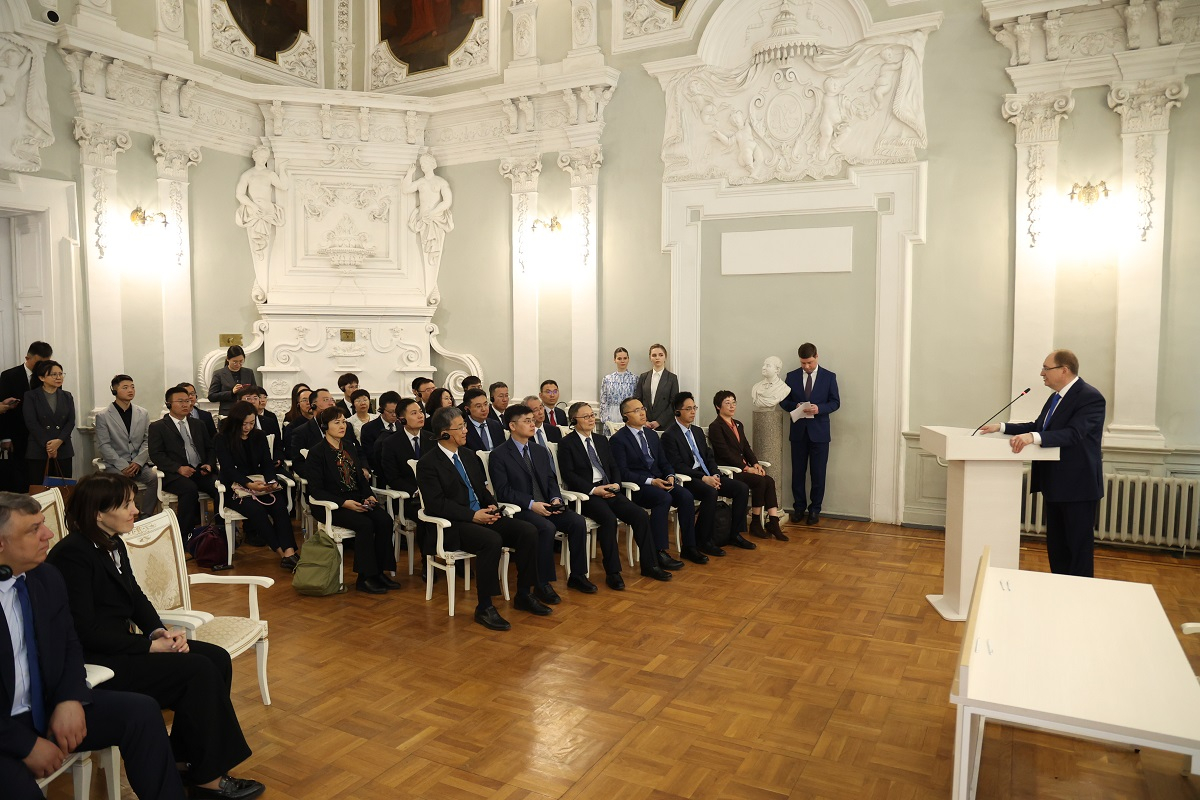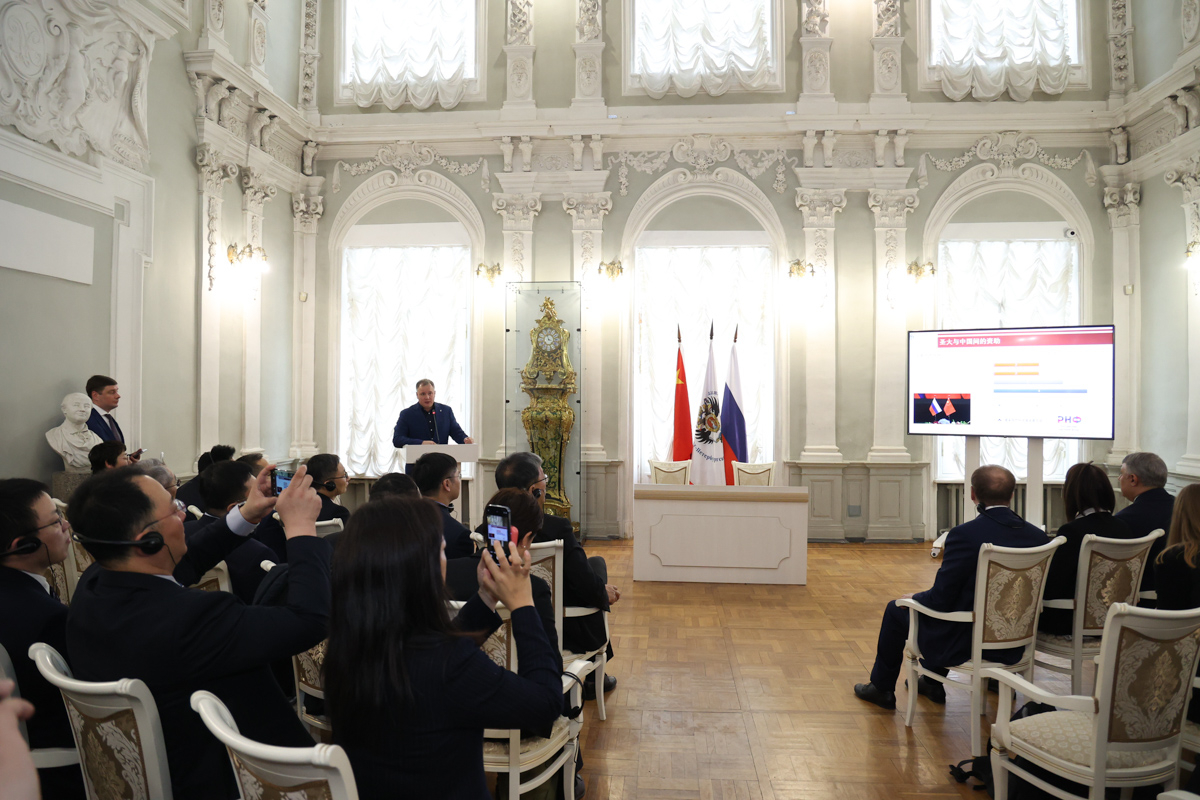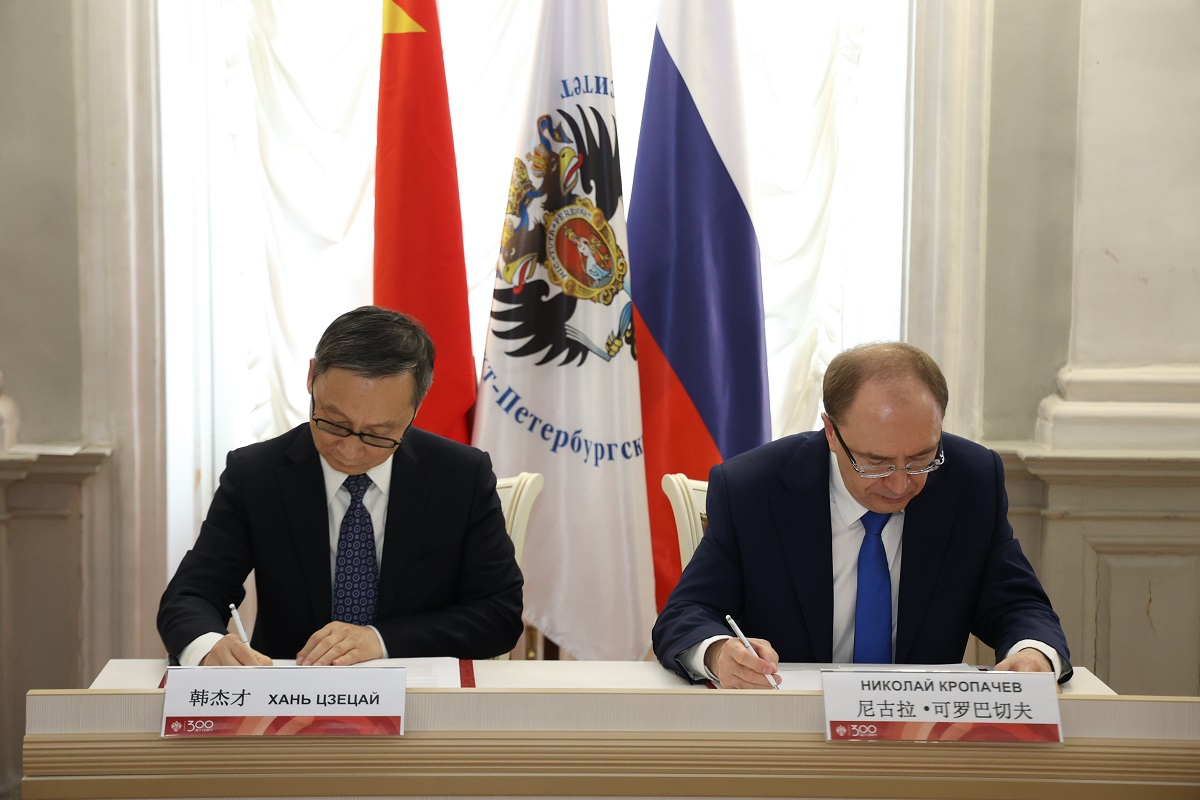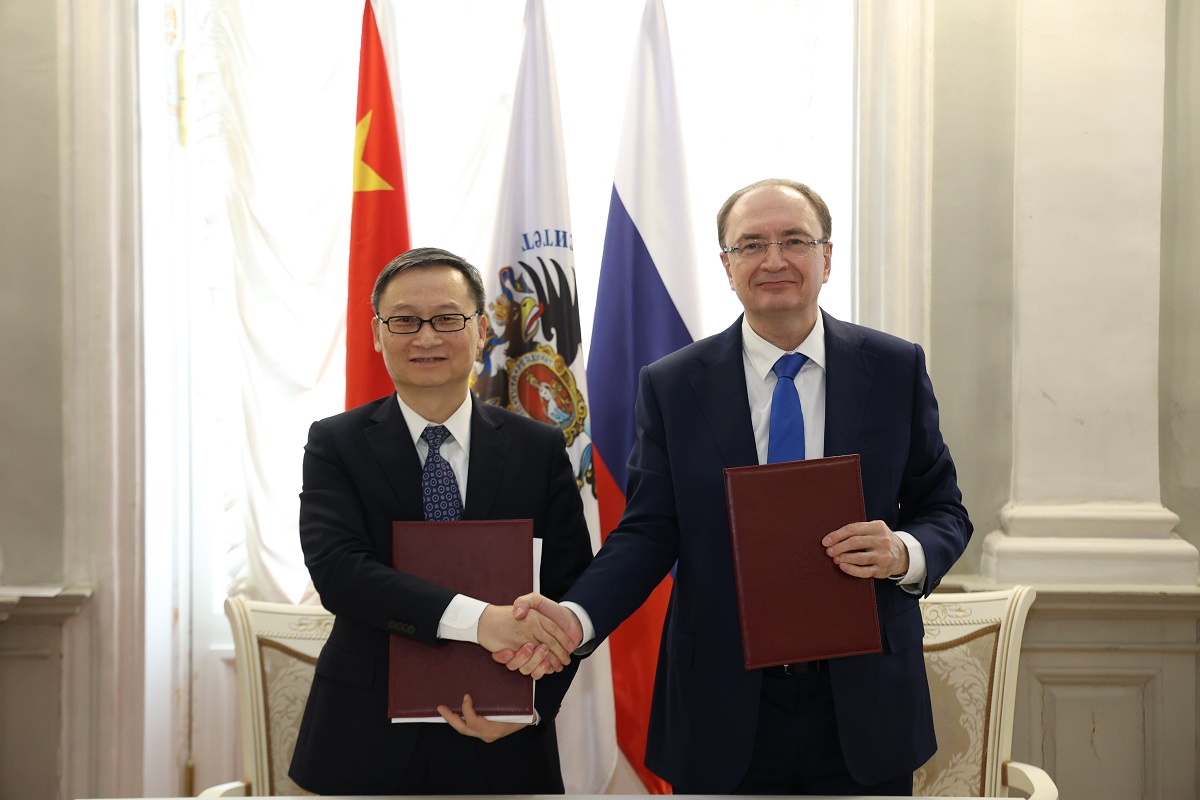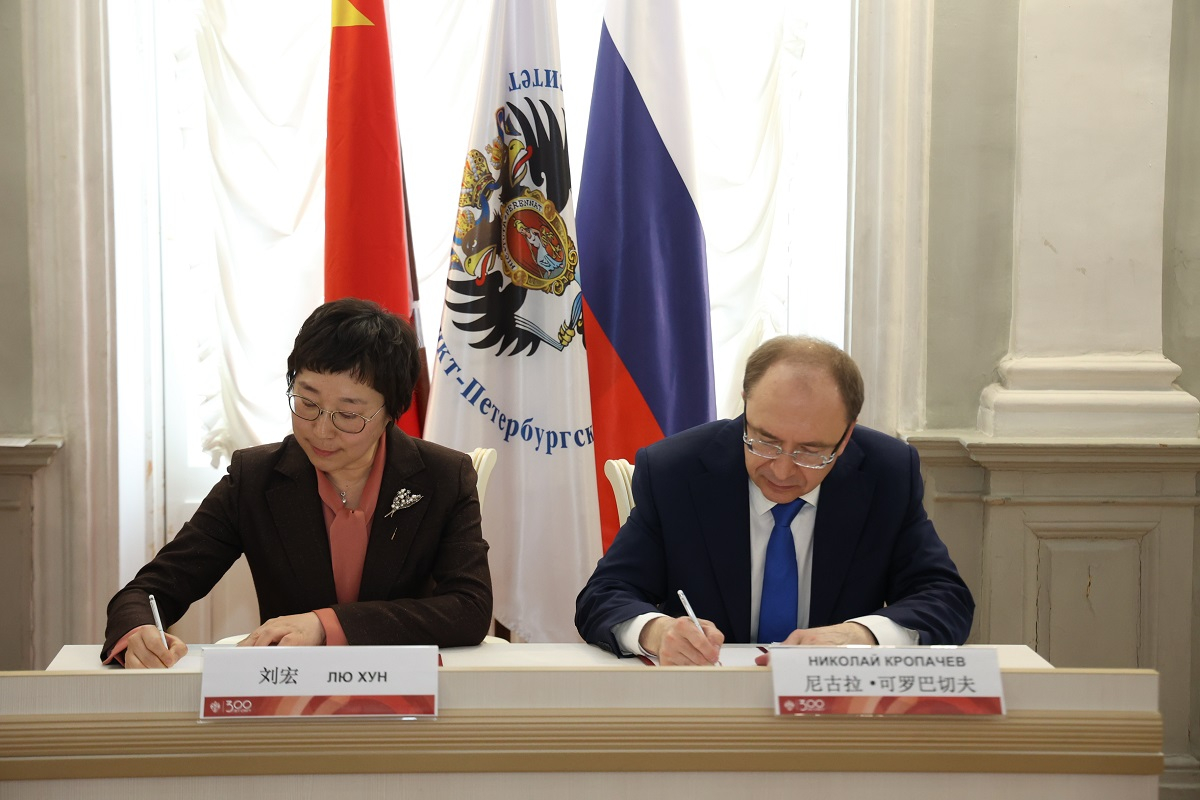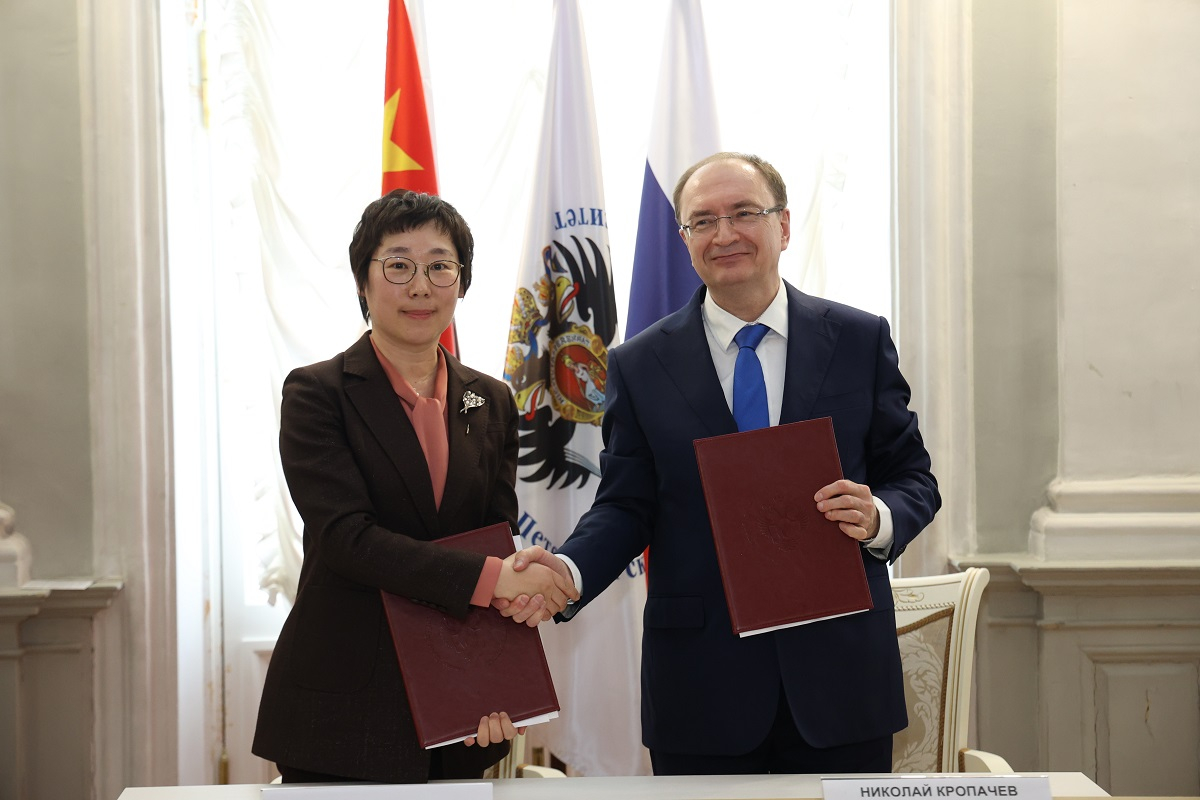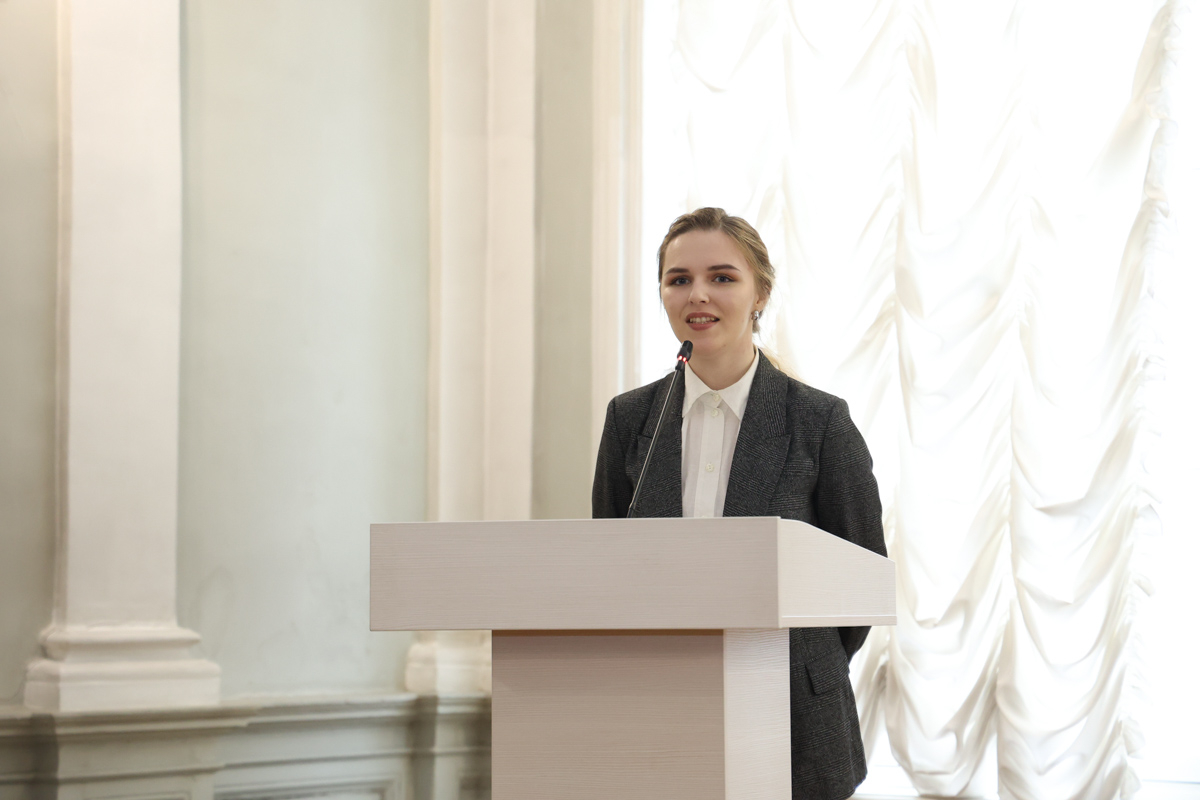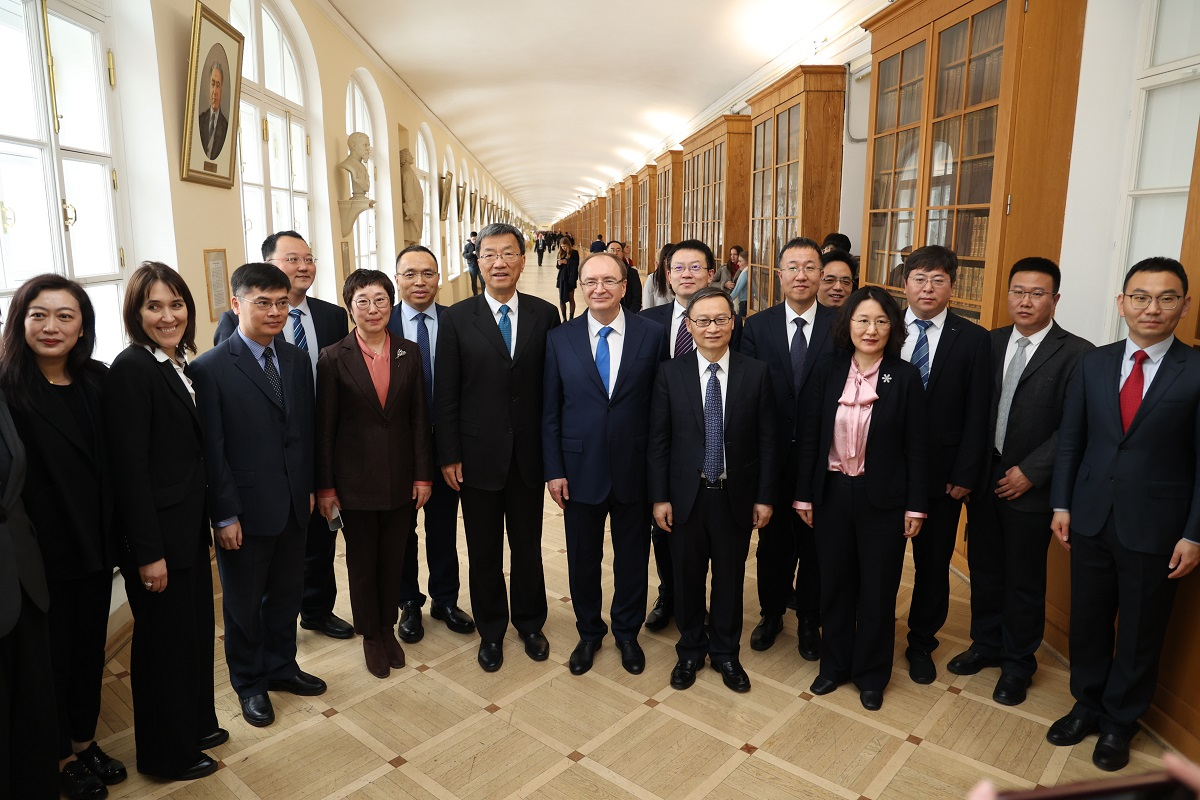New paths of development: Minister of Education of the People’s Republic of China visited SPbU
The Minister of Education of the People’s Republic of China, Huai Jinpeng, paid an official visit to St Petersburg University to discuss the further development of strategic cooperation in science and education. The meeting with the Rector of SPbU was also attended by Rector of Harbin Institute of Technology Professor Han Jiecai, Rector of Dalian University of Foreign Languages Professor Liu Hong, First Secretary of the Embassy of the People’s Republic of China in the Russian Federation Wang Zhe, Consul for Education of the Consulate General of the People’s Republic of China in St Petersburg Liu Zhomei, and Olga Viktorovna Petrova, Deputy Minister of Science and Higher Education of the Russian Federation.
The Minister expressed his gratitude to SPbU for upholding long-standing traditions in education, for fostering talented specialists and distinguished scientists, and noted the University’s high scientific reputation on the international stage. He commended the parties from both countries for their exemplary performance, citing notable achievements in science and in training high-calibre personnel with leadership qualities. He expressed optimism for the continuation of productive cooperation.
I am pleased to be visiting St Petersburg University in the year of its 300th anniversary. We are fully aware of the strategic value of our collaboration and share a strong sense of shared purpose. Your university is a valuable asset not only to St Petersburg, but to the whole of Russia. In this day and age, joint efforts with our Chinese colleagues will undoubtedly become a new source of pride for us.
Huai Jinpeng, Minister of Education of the People’s Republic of China
In his welcoming address to the distinguished guests, Rector of SPbU and corresponding member of the Russian Academy of Sciences Nikolay Mikhailovich Kropachev highlighted the University’s success in establishing a direct agreement with the Ministry of Education of the People’s Republic of China. The agreement has enabled SPbU to successfully launch 91 educational programmes with a Chinese component, foster active academic exchange, produce a significant number of joint scientific publications (1,200 research papers in the period from 2018 to 2023), and elevate its collaboration with the eastern country to a new level.
'Our university is the most "Chinese" university in Russia. The number of Chinese students has increased from 500 to 2,300 in the last 10 years, and the variety of programmes chosen by Chinese applicants has increased 15-fold,' said the Rector of SPbU.
St Petersburg University has become the first higher education institution in Russia to sign a cooperation agreement with the Ministry of Education of the People’s Republic of China, as well as with the provinces of Heilongjiang, Sichuan and Shandong. SPbU is currently engaged in the development of collaborative initiatives with over 80 educational and research institutions across China, including those in Qinghai, Hunan, Anhui provinces and others.
One of the key topics discussed during the meeting was the completion of the joint campus with Harbin Institute of Technology. The main campus buildings have already welcomed the second cohort of undergraduate students in mathematics, chemistry and physics. The parties discussed the remaining stages in the development of this project and the plans for an opening ceremony. "We absolutely share a common vision for the development of basic science. We support all leading Russian and Chinese universities, including yours. SPbU and Harbin Institute of Technology are both well-known international educational institutions with a strong research background, so we are ready to provide all possible support for future cooperation," said the Chinese Minister of Education.
Another area of focus has been the digitisation of education and research processes. The Rector of SPbU has taken the initiative to organise a working group of representatives from Russian and Chinese universities to exchange experiences in the use of digital technologies and artificial intelligence. Nikolay Mikhailovich commented, "New technologies play a crucial role in expanding the boundaries of knowledge and the learning process. Establishing a joint working group will allow us to learn from each other, adapt best practices and develop new educational solutions." He also suggested that Chinese colleagues could facilitate Russian universities’ access to some Chinese national platforms, allowing Russian students and teachers to benefit from China’s distinctive educational resources and exchange ideas directly.
St Petersburg University has become the first Russian university to sign a cooperation agreement with China’s national education platform, XuetangX, and to gain access to one of the largest databases of scientific resources, CNKI.
The Minister of Education of the People’s Republic of China identified digital education as a key strategic goal for national development and expressed his willingness to provide administrative support for such an initiative. "China is now actively developing online course-hosting platforms. We recognise that our researchers and teachers have a responsibility to humanity and are pleased to support the University in a wide range of areas of collaboration. By working together, we can achieve scientific breakthroughs that will benefit every country in the world," Huai Jinpeng endorsed the Rector’s proposal.
Another key item on the agenda was the creation of educational programmes with a Russian component in Chinese universities. This would ensure the integration of the Russian educational and research knowledge base into the educational system of the People’s Republic of China. "I suggest that universities not only in Russia, but also in the People’s Republic of China, should consider implementing programmes to study Russian culture, Russian language, economics, law and other areas. This will provide an opportunity to conclude agreements on networked learning with a significant number of educational organisations in China," stated the Rector of St Petersburg University.
The parties also discussed the organisation of additional education, including short-term courses and training for those with higher education. This will allow students and specialists to expand their knowledge and skills in accordance with the requirements of the modern labour market. Nikolay Kropachev announced the launch of an additional educational programme, Doing business with Russia/China, in partnership with the Harbin Institute of Technology and leading companies from both countries. The programme is designed to help entrepreneurs from both countries enter the Chinese and Russian markets.
The Minister of Education of the People’s Republic of China endorsed the recommendations put forth by the Rector of St Petersburg University, emphasizing that such collaboration is mutually advantageous and serves to strengthen the ties between the educational institutions of the two countries.
We are happy to support any initiatives. In the context of ongoing challenges, it is crucial to maintain an open mind and pursue innovative solutions in science and education. We are committed to taking the necessary steps to achieve these goals. This will be a significant contribution to the development of our collaboration, enabling us to maintain our position at the forefront of our field.
Huai Jinpeng, Minister of Education of the People’s Republic of China
Following the Chinese delegation’s visit to St Petersburg University, a formal signing ceremony was held between SPbU and Harbin Institute of Technology to mark the establishment of a joint Centre for Chemistry and a joint Centre for Physics. A cooperation agreement was also signed with the Dalian University of Foreign Languages. "The support provided to Russian universities is comprehensive and helps to respond to the market demands of both countries, to develop promising areas of co-operation. However, there is undoubtedly room for further development," said Nikolay Mikhailovich Kropachev, Rector of the University.


